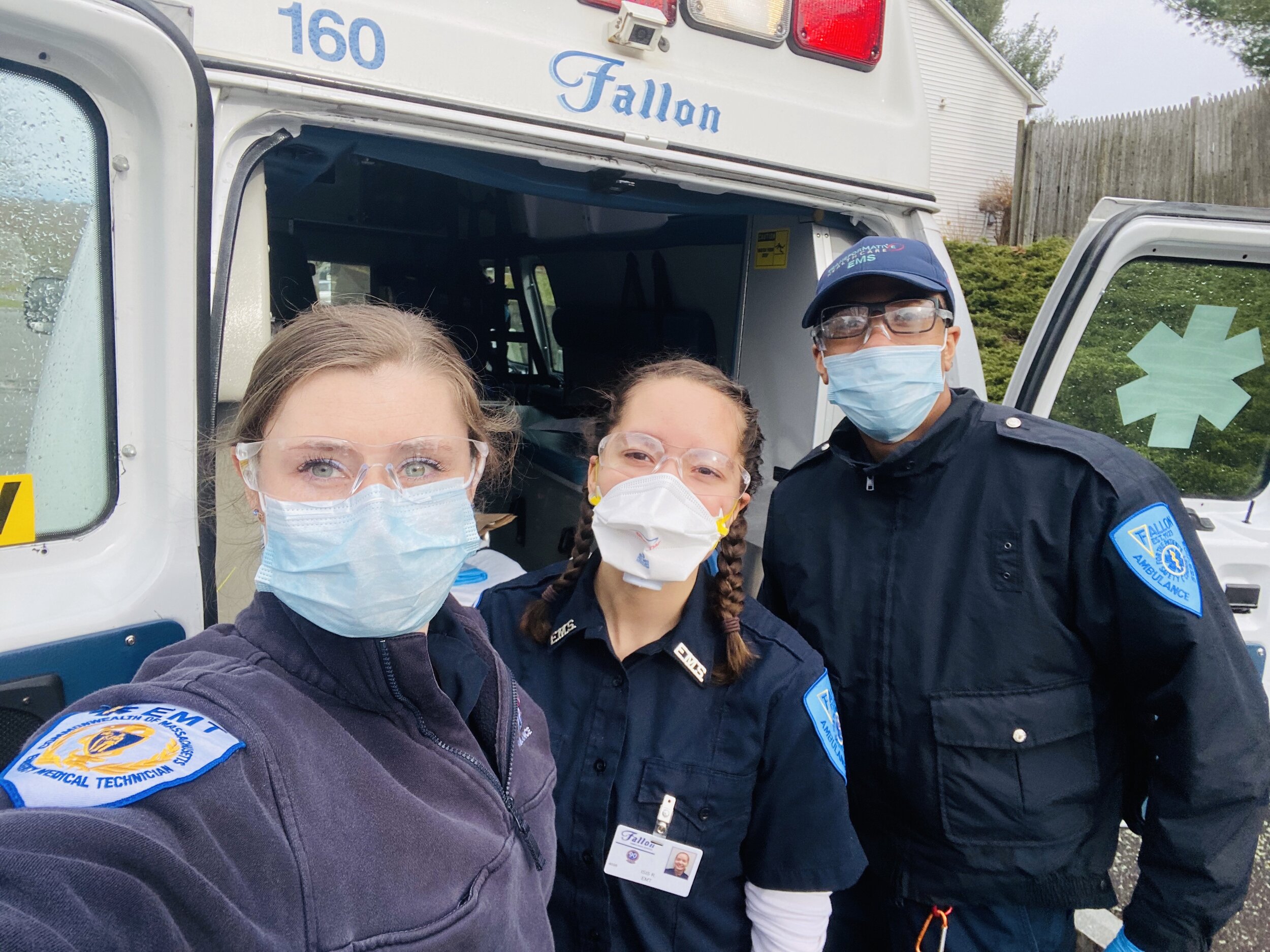
Careers in EMS
Find the provider closest to your home
JOIN ONE OF OUR MEMBER COMPANIES TODAY
How to become an EMT or Paramedic in Massachusetts
Do you have what it takes to make a difference? To be there when people face their greatest needs? If so, we could use you. We’re looking to welcome a new wave of emergency medical professionals in Massachusetts. From private ambulance companies to municipal first responders, there are amazing career opportunities for Emergency Medical Technicians (EMTs) and paramedics.
Check out the training requirements for each of the positions below.
Communications-Dispatch
Fire/EMS dispatcher jobs require professionals who are able to maintain composure and self-control, even in the midst of stressful situations. These emergency communications professionals are front and center for ensuring that communication is clear and that all fire and emergency medical dispatching is rapid and precise. Fire and EMS dispatchers must also have excellent communications skills, both verbally and written, and they must have strong organizational and interpersonal skills.
The minimum requirement for fire/EMS dispatchers is a high school diploma, although many cities and municipalities require a number of other proven skills, including:
The ability to operate a computer aided dispatching system
Knowledge of basic fire/EMS procedures as to effectively dispatch units
A working knowledge of the surrounding geography as to best determine responses among districts and to ensure continuous coverage throughout all districts
The ability to interpret maps, radio codes, and data received from a number of sources
The ability to provide emergency medical assistance to callers
The ability to follow strict policies and procedures, including special procedures for terrorist attacks and hazardous materials situations
911 dispatcher employers in Massachusetts commonly require that new hires go through a mandatory training program, which may include:
40 hours of Basic Public Safety Telecommunicator Course and Certification (Association of Public Safety Communications Officials -APCO or equivalent)
12 hours of Criminal Justice Information System (CJIS) LEAPS Full Access Certification
24 hours of Emergency Medical Dispatch (EMD) certification
4 hours of Suicide Prevention Training
8 hours of CPR Certification
8 hours of Basic Criminal Law for Telecommunicators
EMT-Basic
EMT-Basics have an overall objective to improve the quality of pre-hospital emergency care rendered to victims of accidents and sudden illness. The training program develops skills in symptom recognition and in all emergency care procedures and techniques currently considered to be within the responsibilities of an EMT-Basic providing emergency medical care with an ambulance service.
In order to be eligible to be certified as an EMT-Basic, a person must:
Be at least 18 years of age
Abstain from the abuse of drugs which impairs professional judgment and/or practice
Be free of any physical or mental impairment or disease which could reasonably be expected to impair the ability to be an EMT, or which could reasonably be expected to jeopardize the health and safety of the patient
Meet the training requirements applicable to the level of certification
Obtain National Registry of EMTs (NREMT) certification by successfully completing a Massachusetts psychomotor (practical) examination and NREMT cognitive (computer-based) examination
Once an individual obtains NREMT certification, they must apply for Massachusetts certification in order to work as an EMT-Basic in the Commonwealth. The application and instructions can be found on the Certification page.
Candidates are advised to explore the potential for employment before they enroll in an EMT training course.
Advanced EMT
Advanced Emergency Medical Technicians (AEMTs) provide basic and limited advanced emergency medical care and transportation for critical and emergent patients who access the emergency medical system. This individual possesses the basic knowledge and skills necessary to provide patient care and transportation. Advanced Emergency Medical Technicians function as part of a comprehensive EMS response, under medical oversight. Advanced Emergency Medical Technicians perform interventions with the basic and advanced equipment typically found on an ambulance. The Advanced Emergency Medical Technician is a link from the scene to the emergency health care system.
Minimum training requirements for certification as an AEMT include completion of an EMT-Basic training program and Department-approved Advanced EMT initial training. The course consists of:
Didactic (classroom) learning that follows the National EMS Education Standards published by the National Highway Traffic Safety Administration (NHTSA). All initial training courses must be taught by an EMT training institution accredited by DPH at the AEMT level
Advanced EMT students to clinical rotations and field internships in addition to their didactic (classroom/lab) portions
Paramedic
The Paramedic’s primary focus is to provide advanced emergency medical care for critical and emergent patients who access the emergency medical services (EMS) system. This individual possesses the complex knowledge and skills necessary to provide patient care and transportation. Paramedics function as part of a comprehensive EMS response, under medical oversight. Paramedics perform interventions with the basic and advanced equipment typically found on an ambulance.
The Paramedic is qualified in advanced emergency care and services by a competency -based training program. This is accomplished through:
Rigorous didactic (lectures, discussions and demonstrations);
Laboratory (practical skill) sessions; and
Clinical (in-hospital instruction and supervised practice of critical skills) and field internships (supervised experience on an advanced life support ambulance)
The minimum training requirements for certification as a Paramedic include:
Successful completion of the requirements for training as an EMT-Basic or Advanced EMT
Successful completion of an initial paramedic training program taught by an EMT training institution accredited by DPH at the Paramedic level.

EMS in MA
At this moment, someone in Massachusetts needs medical help. Luckily, Massachusetts is filled with some of the nation’s finest EMTs.























